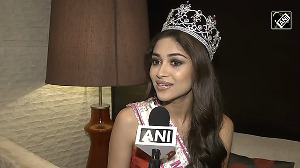Fashion in our culture, like many other virtues, is on a loose leash. Tradition and customs are in many ways opposites of fashion -- but only up to a point, when fashion becomes custom.
For example, if a blue silk sari is part of a cultural custom and for some reason is not available and is substituted by a cotton blue sari, then the latter becomes acceptable. If the blue silk sari becomes available again, but individuals collectively still choose to wear the blue cotton sari, then it is a sign that a fashion has become a custom.
Most customs and traditions assert a sense of permanence in a social group. This permanence then becomes a reference point that suggests the leverage fashion has in a society. What is astonishing is the rate at which fashion is merging with our lives through visual stimulus, which is entrenched in the way we now live our life.
Fashion generally carries with it a tone of approval or disapproval; the emotional context of fashion is measured in the emphasis with which it is packed within its presentation. But, when fashion becomes a fad by default of a particular endorsement or a social vehicle, it marks the beginning of change.
Whether acceptable or not, fads are telltale signs of a culture losing grip on its integrity. A fad is largely seen as an individual expression of a small segment of people living within a larger body of a social group.
This is where fashion starts to get an overture of darkness. Superstardom and populace from the entertainment industry have the awesome power to influence the masses. They can manipulate an appalling fad through their sense of self-expression.
This influence, if not in keeping with fashion, is inflected on to a social canvas, and as a result the erosion of aesthetics sets in at all levels by this one action.
Another aspect that is silently dispensing fashion is tabloid fashion. As demanding editors of our new breed of glossies fight for top party pictures for the eye-catcher's page in their respectable magazines, they are not only creating a new order of fashion hierarchy in the already overexcited social scene, but fuelling it to full throttle. Fads from these glossies are aped and recycled back into the furthermost corners of our society.
It is exceedingly dangerous to rationalise an acceptance of fashion to a fad. With no fashion police to monitor the fashion system, it is left to the earnest among us to build a mindset that determines superior fashion.
In New York, Eleanor Lampard was credited with having created the first annual 'best dressed list' for an important publication and set in motion panic in the affluent Park Avenue pack. Maybe the time has come to find our own Eleanor to separate the honey from the water.







 © 2025
© 2025